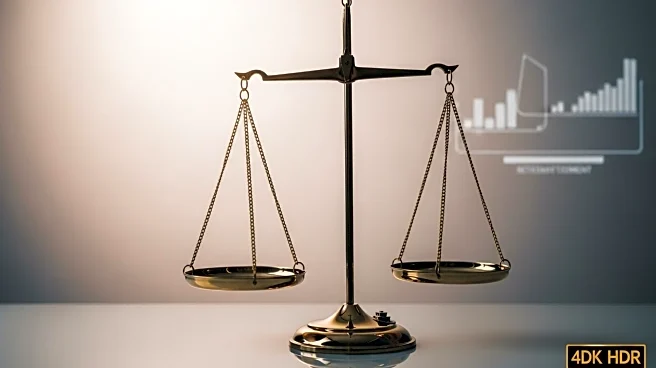What is the story about?
What's Happening?
The Federal Trade Commission (FTC) has reached a settlement with Amazon.com, amounting to $2.5 billion, over allegations of deceptive practices related to its Prime subscription service. The settlement includes a $1 billion civil penalty and $1.5 billion in refunds to consumers who were enrolled in Prime without their consent. The FTC accused Amazon of creating confusing user interfaces that led consumers to unknowingly enroll in Prime and made it difficult for them to cancel their subscriptions. The settlement requires Amazon to cease these practices and implement clearer disclosures and easier cancellation processes. FTC Chairman Andrew Ferguson described the settlement as a monumental win for consumers, emphasizing the need for transparency in subscription services.
Why It's Important?
This settlement is significant as it addresses widespread consumer complaints about deceptive subscription practices, which have been a growing concern in the e-commerce industry. The FTC's action against Amazon sets a precedent for holding large corporations accountable for misleading consumers. The $2.5 billion settlement not only compensates affected consumers but also serves as a deterrent against similar practices by other companies. This development is likely to impact Amazon's business operations, requiring changes to its subscription model and potentially affecting its revenue from Prime memberships. It also highlights the importance of consumer protection in the digital marketplace, encouraging other companies to prioritize transparency and fairness in their subscription services.
What's Next?
Amazon is required to implement changes to its Prime subscription process, including clearer disclosures and an easier cancellation method. The company must also pay for an independent third-party supervisor to monitor compliance with the settlement terms. Additionally, Amazon faces another antitrust lawsuit from the FTC, set to go to trial in February 2027, concerning allegations of monopoly practices that inflate prices and degrade quality. This ongoing legal scrutiny may lead to further regulatory actions and changes in Amazon's business practices. Stakeholders, including consumers and competitors, will be closely watching how Amazon adapts to these legal challenges and whether it can maintain consumer trust and market dominance.
Beyond the Headlines
The settlement raises broader questions about the ethical responsibilities of tech giants in managing consumer data and subscription services. It underscores the need for regulatory frameworks that protect consumers from manipulative business practices. The case also highlights the role of government agencies like the FTC in enforcing consumer rights and ensuring fair competition in the marketplace. As digital subscriptions become increasingly prevalent, companies may need to reassess their strategies to align with evolving consumer expectations and regulatory standards. This development could lead to a shift towards more transparent and consumer-friendly business models across the industry.














